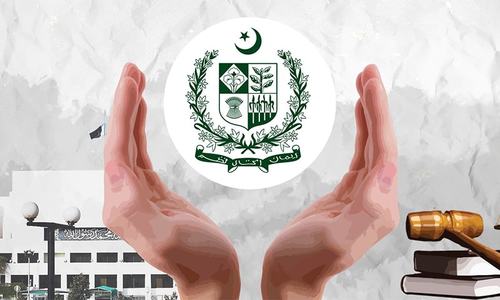Courtesy the chequered political history defined by rigged or manipulated elections, Pakistan had to create a constitutional provision for neutral caretakers at the federal and provincial levels through the 18th Constitutional Amendment in 2010. The Amendment also attempted to establish the empowered and institutionalized independent Election Commission of Pakistan (ECP).
What could be described as ‘double insurance’ for free and fair elections worked with mixed success during Election-2013 and the country witnessed first-ever civilian to civilian transition and transfer of power. Based on the odd experiences of 2013, the Parliament further reformed the system through Election Act-2017 and 22nd Constitutional Amendment that converted the ECP in to a permanent and perpetual institution and legally defined the ‘do’s’ and ‘don’ts’ for the future caretakers.
The system was introduced through the 18th constitutional and was improved through the 20th constitutional amendments in 2012. The Article 224-A incorporated through the 20th Amendment stipulates maximum three constitutional steps for the appointment of caretakers. Each of these steps is entitled to reach at any final decision. In case of no decision between the Leader of the House and Leader of the Opposition, they have to put forward their suggested names to the next mechanism i.e. a Parliamentary Committee created for this specific purpose in the National or any Provincial Assembly comprise of equal representation of the out-going treasury and opposition. If the committee is also unable to reach a decision within three days the proposed names are presented to the ECP that has to come up with a final pick within two days.It is pertinent to mention that after these constitutional amendments the members of the caretaker government and their family members (spouse and children) are not allowed to participate in the general elections and subsequent bye-elections.
In 2018 at Federal level and in Sindh the names of the caretaker Prime Minister and the caretaker chief minister were decided at the first stage. In Khyber Pakhtunkhwa, Punjab and Balochistan the system tested its last limit and the Election Commission of Pakistan picked-up the name of Caretaker Chief Ministers.
How the Constitutional system worked?
The way caretaker governments have been established conveys one loud and clear message that women are totally excluded from it. It is all male imagination only for males. Of course all leaders of the Houses and Leaders of Oppositions in the democratic institutions were male. However, only two names of women (Dr. ShamshadAkhter-now caretaker finance minister and Dr. MalihaLodhi) figured during the conversations at the federal level.
In provinces neither there were any names under consideration nor did the women have any representation in the Parliamentary Committees proposed by the Leaders of the Houses and the Leaders of the oppositions in Punjab, Khyber Pakhtunkhwa and Balochistan.
National/ Provincial |
First Step: Agreement between the Leader of the House and Leader of the Opposition |
Parliamentary Committee on Appointment of the Caretaker PM/CM |
Decision by the Election Commission of Pakistan |
|||
|
|
Proposed Name/s |
Yes/No |
Members of the Committee |
Yes/No |
Decision |
Votes |
Caretaker Prime Minister |
On May 28, 2018 the Prime Minister, Shahid Khaqan Abbasi and Leader of the Opposition jointly announced the name of Justice (R ) Nasirul Mulk as the Caretaker Prime Minister |
Yes |
|
|
|
|
Caretaker Chief MinisterBalochistan |
Chief Minister, Abdul QuddusBazinjo and Leader of the Opposition Abdul Rahim Ziaratwal failed to reach any agreement and nominated the names for the consideration of Committee on June3, 2018.Treasury1. Allauddin Marri2. Sardar Shaukat PopalzaiOpposition1. Jahangir Ashraf Qazi2. AslamBhotani |
No |
Treasury:1. Mir SarfarazDomki2. Amanullah Notazai3. Tahir Mehmood KhanOpposition1. Dr. Abdul Malik Baloch2. Sardar Sanaullah Zehri3. Syed Liaquat Ali Agha |
No |
Allauddin Marri |
On June 7, 2018 |
Caretaker Chief Minister Khyber-Pakhtunkhwa |
Chief Minister, Pervez Khattak and Leader of the Opposition, Maulana Lutfur Rehman failed to reach consensus after the leak of initial agreement on Manzoor Afridi. Later the names were forwarded to the Committee.Treasury:1. Himayatullah Khan2. Ejaz Ahmed QureshiOpposition:1. Manzoor Afridi2. Justice (R ) Dost Muhammad Khan |
No |
Treasury:1. Shah Farman2. Atif Khan3. Mehmood KhanOpposition:1. Malik Noor Salim2. MehmoodBatni3. Mufti Fazal Ghafoor |
No |
Justice ( R) Dost Muhammad Khan |
Unanimous on June 5, 2018 |
Caretaker Chief Minister Punjab |
Chief Minister, Shahbaz Sharif and Leader of the Opposition, Mehmoodur Rashid agreed and announced the name of Ex-Chief Secretary, Nasir Khosa. But the Opposition later backtracked. New names were floated and after failure in agreement the treasuring nominated:1. Admiral (R) Zakaullah2. Justice ( R) Sair AliOpposition nominated:1. Dr. Hassan Askari Rizvi2. Ayaz Amir |
No |
Treasury:1. Rana Sanaullah Khan2. Imran Nazir3. Malik Ahmed KhanOpposition:1. Mehmoodur Rashid2. Sibtain Khan3. Shoaib Siddiqui |
No |
Dr. Hassan Askari Rizvi |
On June 7, 2018 |
Caretaker Chief Minister Sindh |
Retired Chief Secretary, Mr. FazalurRehman on June 1, 2018 finalized by Chief Minister, Syed Murad Ali Shah and Leader of Opposition, Khawaja Izharul Hassan |
Yes |
|
|
|
|


